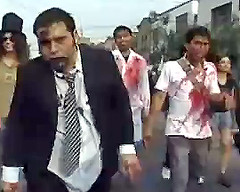History of Ayacucho
Ayacucho is famous for its celebrations during the Easter season, a season I’ll be here to witness. The town has a population of over 90,000, swelling during Semana Santa as people arrive to witness the religious festivities.
The city has a long and important history, dating back as much as 15,000 years where the first evidence of human habitation was found in the caves of Pikimachay. Thousands of years later, but still before the rise of the Incas, the area was home to the Huari civilisation which spanned about half of the Peruvian Andes.
After Francisco Pizarro conquered the Incas, the town of San Juan de la Frontera de Huamanga was founded. Pizarro populated it with Spanish colonists and soldiers to defend against repeated Inca rebellions led by Manco Inca. The town was later renamed to Huamanga.
On 9th December 1824 the Battle of Ayacucho took place in the pampa between Ayacucho and the town of Quinua. It is from this battle that the city of Huamanga got a new name. The battle was between the Spanish trying to maintain their empire and the republicans fighting for South American independence. The nationalist republican troops were led by Antonio José de Sucre under Simón Bolívar. The battle was fierce, but the freedom of the Viceroyalty of Peru, practically all of Spanish South America, was won. The number of dead in this battle was astronomical. The city took on the name of Aya Kuchu – dead corner and became the official name of the city and the Peruvian department.
In the 20th Century, the area was captured by the Sendero Luminoso – the Shining Path. The people suffered greatly during this time. The Shining Path, a Marxist terrorist group aiming to bring socialism to Peru by killing everyone, outlawed all forms of trade and commerce, making the poor people hungrier and poorer. Atrocities were carried out by the terrorists and the Government until the terrorists were eventually defeated.
The town is now peaceful, mostly. Cocaine production and Government eradication efforts are going strong. The city is full of army patrols. The people often turn to the violent vigilantism learnt during the violent times. Being a thief here might get you mobbed and killed. But despite the city’s troubled past, it has an extraordinarily calm and welcoming atmosphere, massively enhanced by the festivities at this time of year.
Tags: ayacucho, huamanga, huari, manco inca, quinua, shining path, spaniards









